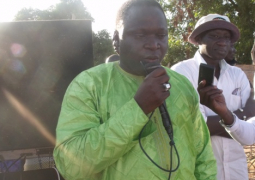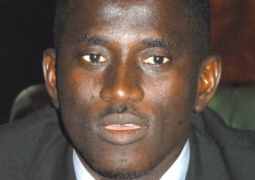We want to say well-done to all those involved in the preparations marking the celebration of this year's World Malaria Day.
The National Malaria Control Programme (NMCP) last Thursday held a press conference for journalists from both the print and electronic media on preparations for this year's celebration of World Malaria Day.
This is a very beneficial and positive move, as malaria poses a serious threat to society. To this end, the media play a crucial role in educating the public towards eradicating the scourge once and for all.
Malaria is a particular problem, and a major one in areas of Asia, Africa, and Central and South America. Unless precautions are taken, anyone living in or travelling to a country where malaria is present can get the disease. Malaria occurs in about 100 countries, and approximately 40% of the world's population is at risk of contracting malaria.
Over the years, The Gambia has registered significant strides in the control and prevention of malaria in the country, through the change of treatment policy and the provision of the anti-malarial drug, called Coartem in all public health facilities, as well as an increased community mobilisation and participation to prevent malaria.
However, despite all the gains registered in the fight against malaria, it is clear that much more needs to be done to ensure a malaria free society.
We hope and pray that the gains registered in the campaign to control malaria will continue, and that with the help of the media we can count out malaria once and for all.
Malaria is a major killer-disease, and thus deserves our respect. Research revealed that, every year, between 350 and 500 million people get infected, and one million die, as a result of malaria, predominantly in the sub-Saharan Africa.
Yet many ignore the need to take anti-malarial medication, or fail to take it properly.
Specifically, more attention must be focused on monitoring and evaluation of malaria policies at all levels to ensure proper implementation of programmes, identify problems, trends or constraints, evaluate the impact of interventions, and ensure accountability.
Malaria is still a major public health problem in The Gambia, accounting for over 40% of hospital visits and being the leading cause of morbidity and mortality.
As we celebrate World Malaria Day, we should take stock of our past achievements in the fight against malaria, and seek new ways of eradicating it from our society.
The day gives us an opportunity, especially we in Africa, to learn from each other's experience and support each other's efforts.
This will present a chance for all stakeholders to make a difference, and help generate broad gains in multiple areas of health and human development.
With this, and a host of others in place, we can surely count out malaria from our midst.
Read Other Articles In Article (Archive)

Rev. Dr. Mark A. Jason of the Methodist Church leaves The Gambia
Jul 6, 2011, 4:06 PM

Football is about bringing people together - Gambia Ambassador to Qatar
Dec 29, 2010, 1:01 PM



